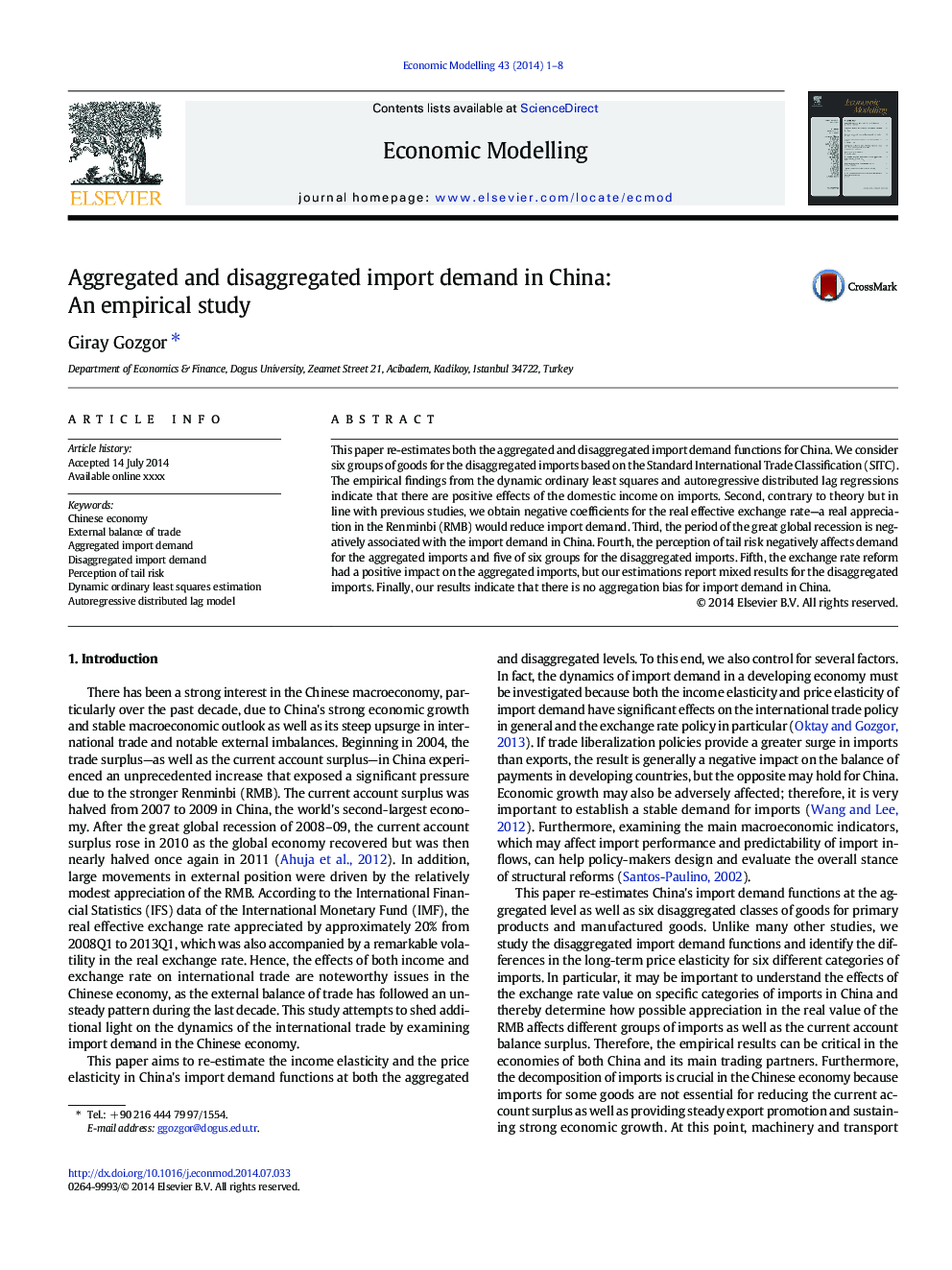| Article ID | Journal | Published Year | Pages | File Type |
|---|---|---|---|---|
| 5054158 | Economic Modelling | 2014 | 8 Pages |
Abstract
This paper re-estimates both the aggregated and disaggregated import demand functions for China. We consider six groups of goods for the disaggregated imports based on the Standard International Trade Classification (SITC). The empirical findings from the dynamic ordinary least squares and autoregressive distributed lag regressions indicate that there are positive effects of the domestic income on imports. Second, contrary to theory but in line with previous studies, we obtain negative coefficients for the real effective exchange rate-a real appreciation in the Renminbi (RMB) would reduce import demand. Third, the period of the great global recession is negatively associated with the import demand in China. Fourth, the perception of tail risk negatively affects demand for the aggregated imports and five of six groups for the disaggregated imports. Fifth, the exchange rate reform had a positive impact on the aggregated imports, but our estimations report mixed results for the disaggregated imports. Finally, our results indicate that there is no aggregation bias for import demand in China.
Related Topics
Social Sciences and Humanities
Economics, Econometrics and Finance
Economics and Econometrics
Authors
Giray Gozgor,
